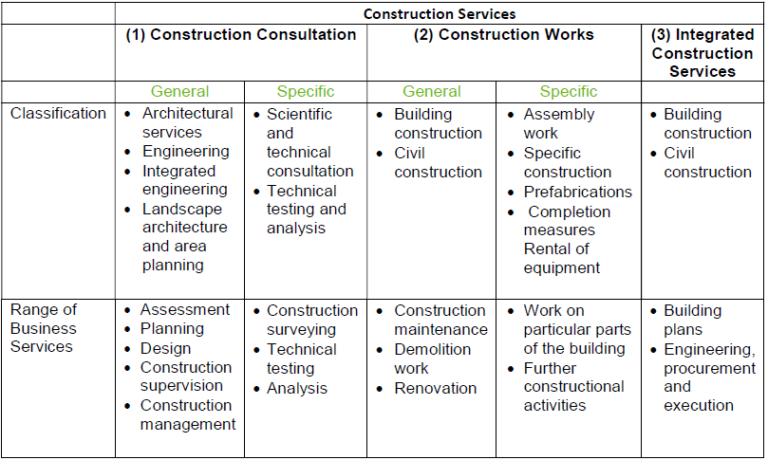Indonesia Construction Business
Registration and Tenders
Indonesia’s Construction Law No. 2 of 2017 required foreign investors to establish either a representative office in cooperation with an Indonesian construction company (representative office), or incorporate a legal entity in a joint venture (JV) with an Indonesian construction company in order to perform construction services in Indonesia.
Legal Update – Foreign Investment in Construction Projects
On 12 January 2017 Indonesia just enacted a new Construction Service Law No. 2 of 2017 (“New Construction Law”) replacing Law No. 18 of 1999 concerning Construction Service (“Law 18/1999”), which had been implemented for more than 17 years. The main aims of this new Construction Law are to increase the competitiveness of national construction service in global competition era, and to update and harmonize it with the other existing and relevant laws and regulations, such as Manpower Law, Information and Electronic Transaction Law, and Regional Authority Law.
In a nutshell, the new Construction Law laid down more detailed construction service and work compared to Law 18/1999. The following are substantial amendments and/or additions under the new Construction Law:
1. Types and classifications of the construction business services

2. Obligation to establish a representative office or legal entity for foreign business entity (PT PMA)
According to the Construction Law, a foreign investor intending to participate in an Indonesian construction project can choose one of the following two forms of investment:
- a Foreign Construction Representative Office (“BUJKA”) or
- a Foreign Investment Company in a joint venture with a local construction company (“PT PMA”).
BUJKA – Construction Representative Office
- A BUJKA must be based on a so-called “big qualification”, meaning the foreign construction company must be certified as a “major company” ( as to be distinguished from small and medium sized enterprises) not only by its country of origin but also by the construction development agency in Indonesia;
- A BUJKA license has to be obtained;
- The national construction company involved in the collaborative construction project also needs the official certificate as a “major company” as well as business licenses for all construction services in Indonesia. The implementation of the joint operation shall be based on equality with regard to qualification, scope of services and shared responsibility;
- The BUJKA is obliged to hire more Indonesian nationals than foreign staff. According to the general practice in Indonesia, three domestic employees have to be hired for one foreign employee. However, the precise ratio required for a BUJKA has not yet been defined
- Leading positions in the BUJKA have to be occupied by domestic employees;
- Domestic materials and technologies shall preferably be used for local construction projects by a BUJKA; and
- High-technologies –using state-of-the-art technology, being efficient and environmentally friendly – as well as local know-how shall be used;
- The transfer of technology shall be fostered; and
- All provisions of relevant laws and accompanying regulations have to be complied with.
The BUJKA license will be issued by the Ministry of Public Works (“MPW”). Additional regulations concerning the procedure for the acquisition of a BUJKA license, the cooperation with the local project partner and the hiring of domestic employees are also determined by the Ministry of Public Works.
PT PMA – Foreign Investment Company in a joint venture with a local construction company
Pursuant to the Construction Law, basically every joint venture with foreign shareholding (PT PMA) has to comply with all prevailing laws and regulations. The so-called “big qualification” (see above) as well as the existence of all required business licenses are equally basis prerequisites for the PT PMA.
- The maximum shareholding in a PT PMA with scope of business in the field of construction consultation or construction work is generally 67 % for foreign investors and 70% for investors from ASEAN countries.
- PT PMA can only be set up for those construction projects where high-technologies are used, high risks exist or the project value exceeds 50 billion IDR for construction works or 10 billion IDR for construction consulting services.
The Construction Law also obliges both, BUJKA and PT PMA, to obtain a Certificate of Business Entity (“SBU”). For this purpose, a registration at the MPW through a state-approved association is required.
South Quarter, Tower B, Mezzanine Level, Jl. R.A. Kartini Kav. 8, RT.10/RW.4, Cilandak, Jakarta 12430
Ph: +62 815 629 0000
Payment :

Follow us :


 20% off today. Whatsapp us!
20% off today. Whatsapp us!